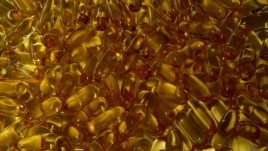For people with digestive issues, life tends to revolve around what you can and can't eat and how far away from the nearest bathroom you dare to venture. That's certainly the case with Crohn's disease, which along with ulcerative colitis is one of the two most common forms of inflammatory bowel disease. Symptoms include wrenching stomach pain soon after eating (typically in the lower right side) and relentless diarrhea. It's relatively rare, but a new research finding suggests that people with Crohn's are seven times more apt to carry bacteria that cause a related gastrointestinal disease in cattle. The bacteria -- Mycobacterium avium subspecies paratuberculosis or MAP -- has been found in milk in American supermarkets, and some studies have found it in meat and cheese, raising the possibility that it may be passed up the food chain to people.
IT'S GUT WRENCHING
Whether or not bacteria such as MAP cause disease in the intestinal tract is largely a matter of threshold, explains Daily Health News contributing editor Andrew L. Rubman, ND. A person with a healthy, intact digestive tract will likely be able to resist infectious bacteria. But the large intestine is the body's center of immunity, and when the digestive tissue becomes damaged and inflamed, it becomes more susceptible to invasive microorganisms, be it MAP or the increasingly infectious species of E. coli, Salmonella, and other causes of food poisoning. If the balance of healthy versus harmful bacteria is disrupted and/or tissue is damaged, people become less able to resist disease and it becomes more difficult to treat. Dr. Rubman and I talked more about Crohn's disease in general, and about natural support for people with this problem.
Little is known about the causes of Crohn's disease, although family history, an overactive immune system and inflammation response, and environmental triggers are all believed to play a role. It differs from ulcerative colitis (which causes similar symptoms) because inflammation is deeper in the intestinal wall and also potentially affects the entire gastrointestinal tract from mouth to anus. Ulcerative colitis primarily affects the colon and small intestine. There's no known cure for Crohn's and remedies offered by conventional medicine are riddled with problems. In September 2008, the FDA ordered stronger warnings for common Crohn's drugs -- infliximab (Remicade), adalimumab (Humira) and certolizumab pegol (Cimzia) -- after an association with the risk of developing fungal and yeast infections such as Candidiasis was found. Because conventional treatments have significant side effects -- even when they work, and they don't always -- more than half of people with Crohn's disease turn to natural therapies.
NATURAL SOLUTIONS
Since Crohn's disease affects different people in different ways, Dr. Rubman individualizes treatment for each patient, working in collaboration with his/her gastroenterologist -- a strategy he suggests for all Crohn's patients since a combination of natural and mainstream treatments seems to be most effective.
Dr. Rubman's natural solutions include...
- Probiotics. Health requires maintaining a balance between good and bad bacteria in the digestive tract. Poor diet, stress or a digestive disorder such as Crohn's can result in a takeover of the system by "bad" bacteria, resulting in symptoms such as diarrhea and gas. To restore a proper floral balance, Dr. Rubman frequently prescribes a seven- to 10-day course of a probiotic supplement composed of Lactobacillus acidophilus and Bifidobacterium bifidus. However, he notes that it is important to have a stool test before treatment, in order to ensure the proper probiotic formula is administered.
- Fish oil. A small British study found that fish oil taken with antioxidants may help reduce the inflammation associated with Crohn's disease. Eat fatty fish such as salmon, mackerel or sardines two or three times a week. In addition, Dr. Rubman often prescribes one or more grams of an EPA-DHA fish oil capsule or liquid daily.
- Vitamin B-12. When the bowel has been damaged by Crohn's disease, it may no longer effectively absorb B-12. If you are tired and rundown, ask your doctor to test you. Dr. Rubman prefers to prescribe sublingual B-12 rather than B-12 shots. "It's as effective, less expensive and certainly more comfortable," he notes.
- Acupuncture. Acupuncture has traditionally been used to treat inflammatory bowel disease in China and is meeting with increasing mainstream acceptance in the US. A small German study suggests that acupuncture may help improve quality of life and general well-being in people with Crohn's disease by modulating symptoms and may even result in a small decrease in inflammatory markers in the blood. Find an acupuncturist in your area at the Web site of the American Association of Acupuncture & Oriental Medicine at http://www.aaaomonline.org/45000.asp.
- Focus on whole foods, fresh fruits and vegetables. A diet that contains lots of processed and fast foods -- like white bread, sugary desserts, etc. -- stresses the bowel and may trigger inflammation and worsen symptoms of Crohn's disease. Disease-causing microorganisms thrive on foods like these. Many people with Crohn's report that they feel better when they eliminate or significantly cut back on processed foods and place a greater emphasis on whole foods, fresh fruits and vegetables and moderate amounts of protein. Avoid milk and dairy products as well as trans fats, as they can also irritate the intestinal track.
- Decompress. Many people with Crohn's find that their symptoms worsen during stressful periods. If you find this to be the case, take steps to effectively manage stress. Do whatever works best for you -- whether that is yoga or meditation or dancing or tennis.
- Stay away from colonics. Many people are tempted to turn to this "quick fix," but Dr. Rubman warns that colonics can backfire and worsen symptoms. The large intestine requires a healthy balance of microorganisms to function properly, and colonics indiscriminately wipe out the good with the bad under the thinly supported premise of detoxification.
To feel more in control of your disease and your life, learn more about Crohn's and connect with others who are going through the same things you are. Join message boards, chats, blogs and support groups (online or offline) at Web sites such as www.ccfa.org, or those listed at http://www.crohns-disease-and-stress.com/support.html and http://ibdcrohns.about.com/od/onlinesupport/a/supportgroups.htm.
Acknowledging that a diagnosis of Crohn's disease is never good news, Dr. Rubman urges those who have the problem to be optimistic -- it can often be controlled without drastic drugs or a draconian diet, and quality of life need not suffer.
Source(s):
Andrew L. Rubman, ND, director, Southbury Clinic for Traditional Medicines, Southbury, Connecticut.
American Society for Microbiology, http://www.asm.org/
 Fish oil capsules are popular for heart health benefits
Fish oil capsules are popular for heart health benefits
